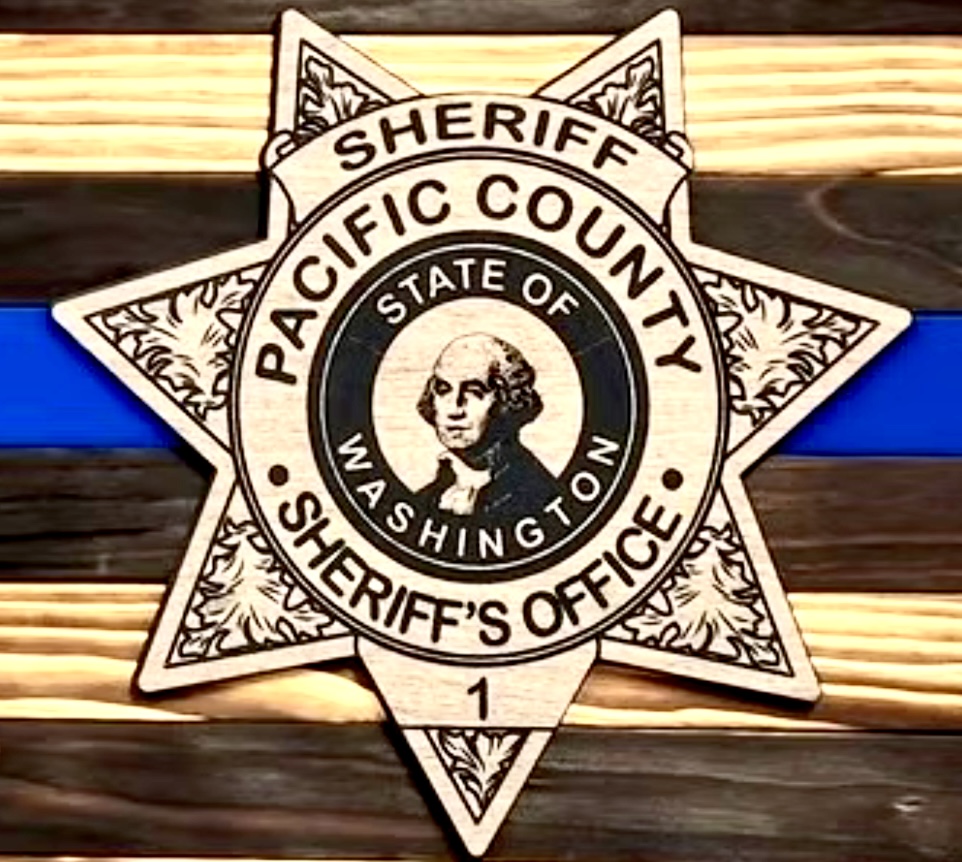Opinions collide during radio comms meeting
Published 7:06 pm Thursday, March 28, 2024

- Pacific County faces millions in tort claims alleging a variety of mistakes and misdeeds.
SOUTH BEND — The gloves came off during a radio communications operations meeting between all Pacific County law enforcement, fire districts, and related agencies on March 28. The sparring came down to Pacific County Sheriff Daniel Garcia changing his agency’s radio etiquette so that it became inconsistent with other law enforcement agencies in the county.
The sheriff’s new radio etiquette was implemented earlier this month to reflect the radio verbiage used by Det. Cory Nacnac for the past 14 months. It involves a unit calling another unit or dispatch center followed by their call sign and then their transmission verbiage — the reverse of what’s been used for decades in the county.
Pacific County 911 Dispatch Center (PacCom) Director Ed Heffernen responded to an email from Garcia on March 18 detailing PCSO’s change, requesting that the agency backtrack and await a formal decision by the operations board.
“I didn’t request to change,” Garcia said. “I simply stated that we are making this change for internal; it is more effective in the call order to say, ‘Hey you, this is me, and this is my traffic.’ There are inefficiencies in the way we communicate here in Pacific County.
“The rest of the planet uses this call order and a lot of thought went into this, and I didn’t request anybody do anything different. I merely gave a heads up of ‘This is what we were doing.’ I would love to have someone outline in detail the confusion and/or concern of safety for this call order,” Garcia added.
Garcia and his agency disregarded Heffernen’s request, and implementation of the change has continued — including changing the phonetics from standardized law enforcement of Adam, Boy, Charles, etc., to military phonetics of Alpha, Bravo, Charlie, etc.
Nacnac has been heard using the phrase “Tango Mike,” which translates to “Thank you much,” although most dispatchers, officers, and radio listeners have no reason to know what it means.
The change allegedly has caused significant confusion for dispatchers and other law enforcement agencies. Even some deputies transmitting under the new etiquette have been stumbling over their transmissions.
Dispatchers Jamie Moseley, Amber Rye and Jaime Souvenir sparred with Garcia. They were joined by Long Beach Police Department Chief Flint Wright, South Bend Police Chief Lucas Stigall, and consultant Steve Reinke.
“It just confuses everybody; I mean, we have done it this way for so long,” Moseley said. “I mean, my dad was an officer for 42 years. He talked the same way that we have talked. I have been there almost 15 years. It is just very confusing, and I think it is officer safety issues.
“The officers are not knowing who they are talking or the deputies are sounding very confused. The ones besides Nacnac who been saying it all along, it is just very confusing for dispatch and trying to teach somebody new, because I am the head trainer, trying to teach somebody new ‘Okay, so this agency is going to talk like this, but these guys are gonna talk like this.’ It just doesn’t make any sense to me,” Moseley added.
Wright was the most animated during the meeting. He wanted Garcia to consider the dispatchers’ thoughts and keep things as they were.
“The point is, sheriff, they have asked you,” Wright said. “They have asked you, the dispatchers asked you to not do this. That is the the point. I do not care if the rest of the planet does it, that is fine, they can do it any way they want. But it seems to me, sheriff, the dispatch center is saying ‘Look, this is the way we prefer.”
Nacnac also chimed into the argument, allegedly outlining protocol in the dispatch manual that states the request from Garcia is exactly what the PacCom policy states.
However, the manual states on Page 8, Section 6, that dispatchers shall state County, unit number, and then the officer’s message.
Under Garcia’s policy, the order would be the transmitting unit, the unit they are calling, and then the message.
“It seems to me, sheriff, that if the dispatcher center is asking you to do it a certain way, then why would you not go along with any other law enforcement agencies,” Wright said. “Why would you say, ‘No, I have done my own research,’ and we are saying no.”
“It is the exact same reason why, if the dispatch, or let’s say the governor, told me I had to get a shot because it is best for me or everybody’s doing it, why I didn’t and why I wouldn’t,” Garcia replied.
After over 40 minutes of sparring, Raymond Police Chief Pat Matlock motioned to keep radio etiquette what it has been for the past three decades, which was seconded by Stigall. Fire agencies abstained, asking law agencies to settle the issue themselves.
All law enforcement agencies voted yes, including Garcia — who thus appeared to backtrack with his vote.








